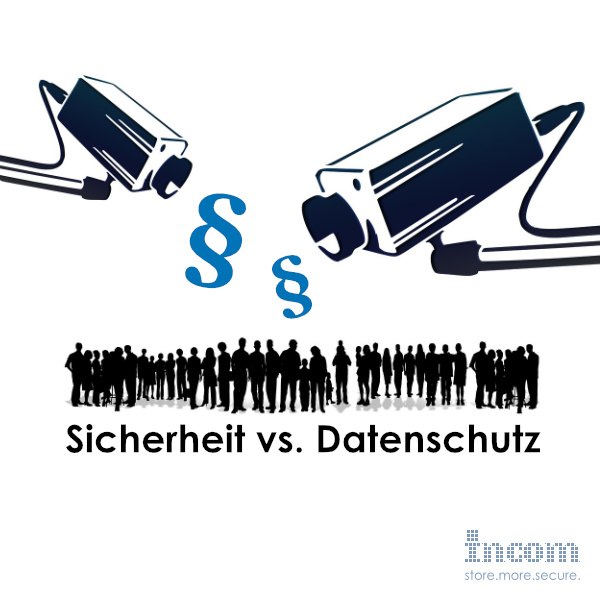There are repeated calls for more video surveillance, as recently again by Horst Seehofer, Minister of the Interior, who is calling for stronger surveillance of railroad stations and has announced an investment package of 70 million euros for the expansion of camera systems by 2023. In addition to providing information, video surveillance is intended to serve as a deterrent here, with the aim of preventing incidents rather than having to clear them up afterwards. Prevention includes, among other things, automatic face recognition, which is fed with data from a central location and is designed to detect unwanted visitors at an early stage.
Discussions about the pros and cons of video surveillance are generally very controversial, as it is like a balancing act to combine security and data protection. In fact, the topic of data protection is becoming easier and easier with more and more modern solutions, because many points of criticism can be cleared up with many features in the company's cameras and the software behind them. For example, areas that cannot be monitored can be blacked out, faces can be pixelated or cameras and software can be set so that the recorded images are only saved in the event of certain preset events, such as fire or movement of objects of a certain size.
In general, videos and images are stored in so-called ring buffers, which overwrite themselves after a certain period of time, depending on capacity and settings. In any case, recordings are only taken out and saved here when needed. Other solutions, such as those used in the retail sector, which record the movement patterns of customers in the store and can automatically generate many more statistics, make them anonymous and abstract them in such a way that no real images need to be stored here anyway.
The systems are now also protected to a maximum degree from external intervention. For example, immediately after the installation of the Dahua cameras, a new access password must be created for each one in order to avoid weak points such as preset standard passwords. Here Dahua already consulted TÜV Rheinland before the DSGVO came into force and developed a comprehensive solution for certifying the data protection of Internet of Things products for various Dahua products such as IP cameras, network video recorders, software platforms, intelligent servers and many other solutions.
Whether at our regular events or in a non-binding personal consultation appointment, we are happy to present our product range and technical possibilities to resellers, installers or end customers with larger projects.
